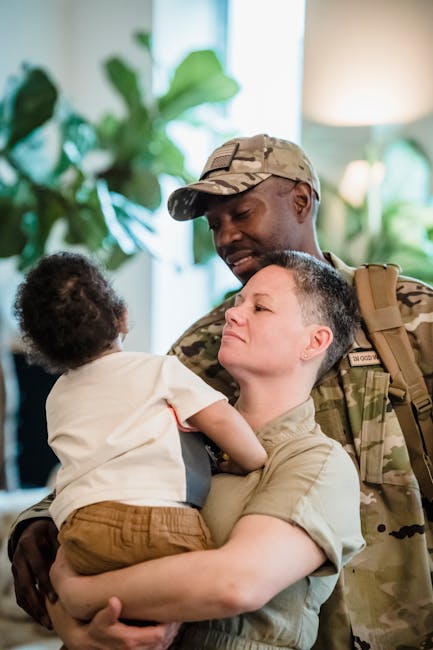How To Communicate Your Needs Effectively?
Expressing your needs effectively is the cornerstone of healthy relationships, whether with a partner, friend, or colleague. It’s about being honest with yourself and others while fostering understanding and connection. If you’ve ever felt unheard, misunderstood, or frustrated because your needs weren’t met, this guide is for you. Stick around, and we’ll explore practical strategies to help you speak up with clarity and confidence.
Key Takeaways
- Communication is essential for strong and meaningful relationships.
- Unmet needs can lead to frustration, resentment, and conflict.
- Expressing your needs clearly can improve understanding and strengthen bonds.
- Preparation, timing, and active listening are key to effective communication.
Understanding the Importance of Communicating Your Needs
Why communication is vital in relationships
Communication is like the glue that holds relationships together. Without it, misunderstandings creep in, and assumptions take over. When you express your needs, you’re not just sharing what’s important to you—you’re also inviting the other person to connect with you on a deeper level.
Think about it: how can someone meet your needs if they don’t even know what they are? Clear communication bridges that gap and creates a space for mutual respect and understanding.
The impact of unmet needs on relationships
When needs go unspoken, they often go unmet. This can lead to feelings of neglect, frustration, or even resentment. Over time, these emotions can erode trust and intimacy.
For example, imagine you’re feeling overwhelmed at work and need support at home. If you don’t communicate this, your partner might assume everything’s fine. Meanwhile, you’re silently stewing, and they’re left in the dark.
Benefits of expressing your needs effectively
When you express your needs, you empower yourself and others. It’s like giving someone a roadmap to your happiness. Clear communication reduces misunderstandings, strengthens relationships, and builds trust. Plus, it feels pretty amazing to be heard and understood, doesn’t it?

Preparing to Communicate Your Needs
Reflecting on your own needs
Before you can communicate your needs, you need to understand them yourself. This might sound simple, but it’s not always easy.
Identifying what you truly need
Ask yourself: What’s missing? What would make me feel supported, valued, or happy? Be specific. Instead of saying, “I need more help,” try, “I need help with cooking dinner on weekdays.”
Using emotions to understand your needs
Your emotions are like little messengers. If you’re feeling angry, sad, or anxious, dig deeper. What’s the unmet need behind those feelings? For example, loneliness might signal a need for connection, while frustration could point to a need for boundaries.
Choosing the right moment for the conversation
Timing is everything. Bringing up your needs during a heated argument or when the other person is distracted is a recipe for disaster. Choose a calm, private moment when both of you can focus.
Avoiding assumptions and clarifying your thoughts
Don’t assume the other person knows what you need. People aren’t mind readers! Take the time to organize your thoughts and be as clear as possible.

Strategies for Effective Communication
Using “I” statements to express yourself
“I” statements are a game-changer. They help you express your feelings without sounding accusatory.
How “I” statements reduce defensiveness
When you say, “I feel overwhelmed when I don’t get help with chores,” it’s less likely to trigger defensiveness than, “You never help me!”
Examples of effective “I” statements
- “I feel hurt when plans change without notice.”
- “I need some quiet time to recharge after work.”
Avoiding blame and criticism
Blame is like throwing fuel on a fire—it only makes things worse.
The negative effects of blame on dialogue
Blaming someone puts them on the defensive, making it harder for them to hear you. Instead of saying, “You’re so selfish,” try, “I feel unimportant when my needs aren’t considered.”
Focusing on solutions instead of problems
Shift the focus from what’s wrong to what can be done. For example, instead of dwelling on how messy the house is, suggest creating a cleaning schedule together.
Practicing active listening
Communication isn’t just about talking—it’s also about listening.
Techniques for active listening
- Make eye contact.
- Nod or give verbal cues like “I see” or “That makes sense.”
- Repeat back what you’ve heard to confirm understanding.
Understanding your partner’s perspective
Put yourself in their shoes. What might they be feeling or needing? This can help you respond with empathy and compassion.

Building Healthy Communication Habits
Fostering open and honest dialogue
Honesty is the foundation of any strong relationship. Create a safe space where both of you feel comfortable sharing your thoughts and feelings.
Avoiding demands and unrealistic expectations
Nobody likes being told what to do. Instead of making demands, express your needs as requests. And remember, no one can meet all your needs all the time.
Using nonviolent communication techniques
Nonviolent communication (NVC) is a powerful tool for building connection and understanding.
How nonviolent communication fosters connection
NVC focuses on expressing feelings and needs without blame or judgment. It’s about saying, “This is what I’m feeling, and this is what I need,” in a way that invites collaboration.
Steps to implement nonviolent communication
- Observe the situation without judgment.
- Express your feelings.
- State your needs.
- Make a clear, actionable request.
For more tips on setting boundaries and fostering healthy communication, check out this guide (source).

Overcoming Challenges in Communication
Addressing misunderstandings and conflicts
Misunderstandings are inevitable, but they don’t have to derail your relationship. Approach conflicts with curiosity instead of defensiveness. Ask questions like, “Can you help me understand what you meant?”
Seeking professional help when needed
Sometimes, despite your best efforts, communication remains a struggle. That’s okay. Seeking help is a sign of strength, not weakness.
Benefits of couples counseling
A trained therapist can provide tools and strategies to improve communication and resolve conflicts.
When to consider counseling
If you’re stuck in a cycle of misunderstandings or feel like you’re speaking different languages, it might be time to seek support. Learn more about why communication is crucial in therapy here (source).
Maintaining patience and persistence in improving communication
Rome wasn’t built in a day, and neither are great communication skills. Be patient with yourself and others as you learn and grow. Celebrate small victories along the way.
Communicating your needs effectively is a skill that takes practice, but the rewards are worth it. By being honest, clear, and compassionate, you can build stronger, more fulfilling relationships. And remember, it’s okay to ask for help along the way—whether from a trusted friend, a partner, or a professional.
For more insights on improving communication, check out this resource (source).
FAQ: Mastering the Art of Communicating Your Needs Effectively
Why is it important to communicate your needs effectively?
Communicating your needs effectively helps build stronger relationships, reduces misunderstandings, and ensures that your voice is heard. It fosters mutual respect and promotes healthier interactions in both personal and professional settings.
What are the key elements of effective communication?
The key elements include clarity, active listening, empathy, and assertiveness. Being clear about what you need, listening to others’ perspectives, showing understanding, and confidently expressing yourself are all crucial for effective communication.
How can I overcome the fear of expressing my needs?
Start by identifying the root of your fear, such as fear of rejection or conflict. Practice self-affirmation and rehearse what you want to say. Begin with small, low-stakes conversations to build confidence over time.
What role does body language play in communicating needs?
Body language significantly impacts how your message is received. Maintaining eye contact, using open gestures, and adopting a confident posture can reinforce your words and convey sincerity and confidence.
How can I ensure my message is understood by others?
Use simple and direct language, avoid jargon, and check for understanding by asking for feedback or clarification. Tailor your communication style to your audience to ensure your message resonates with them.
What are some common barriers to effective communication?
Common barriers include lack of clarity, emotional reactions, cultural differences, and distractions. Being aware of these barriers can help you address them proactively during conversations.
How can I practice active listening to improve communication?
Active listening involves giving your full attention, avoiding interruptions, and responding thoughtfully. Reflect on what the other person is saying and ask clarifying questions to show genuine interest and understanding.
What is the difference between being assertive and being aggressive?
Assertiveness involves expressing your needs and opinions respectfully and confidently, while aggression disregards others’ feelings and can come across as confrontational. Assertiveness fosters collaboration, whereas aggression often leads to conflict.
Can effective communication help resolve conflicts?
Yes, effective communication is key to resolving conflicts. By expressing your needs clearly, listening to others, and working collaboratively toward a solution, you can address disagreements constructively and maintain positive relationships.
How can I improve my communication skills over time?
Improving communication skills requires practice, self-awareness, and feedback. Engage in regular conversations, reflect on your interactions, and seek constructive feedback from trusted individuals to continually refine your approach.



